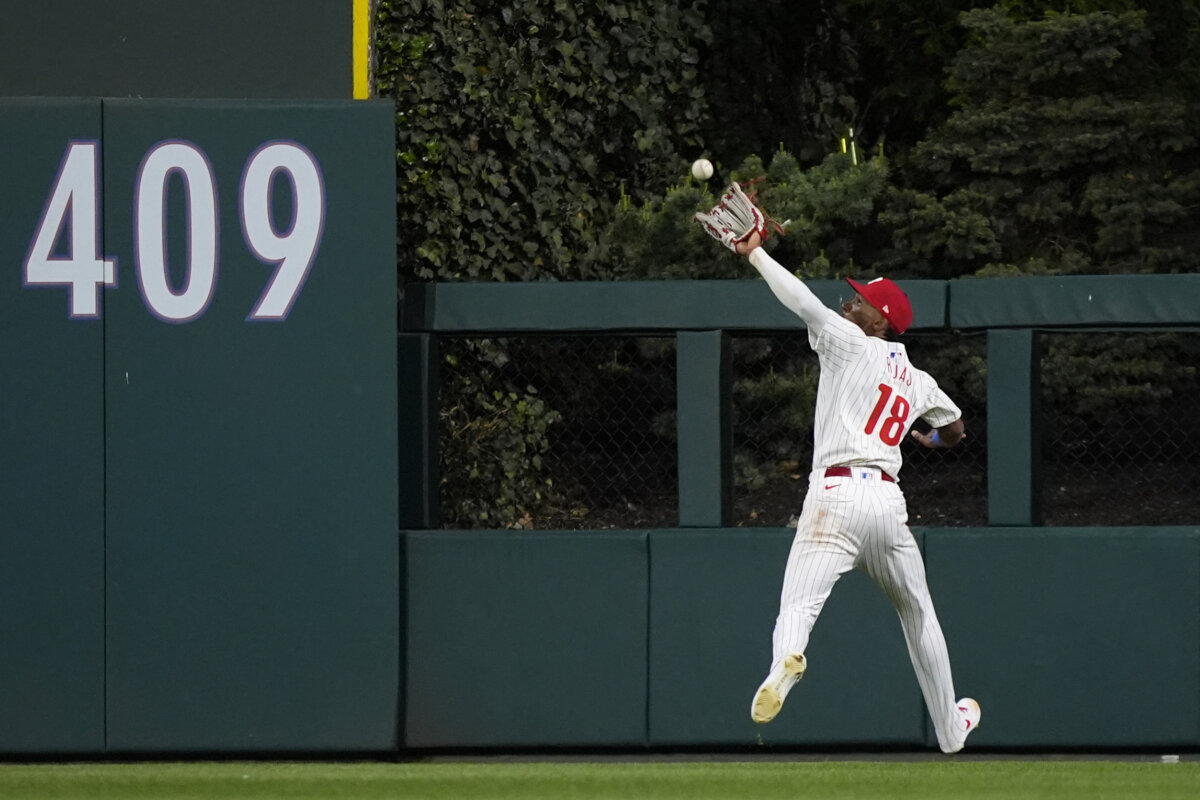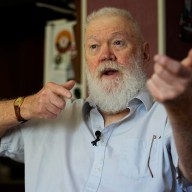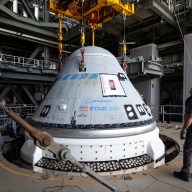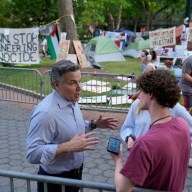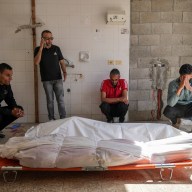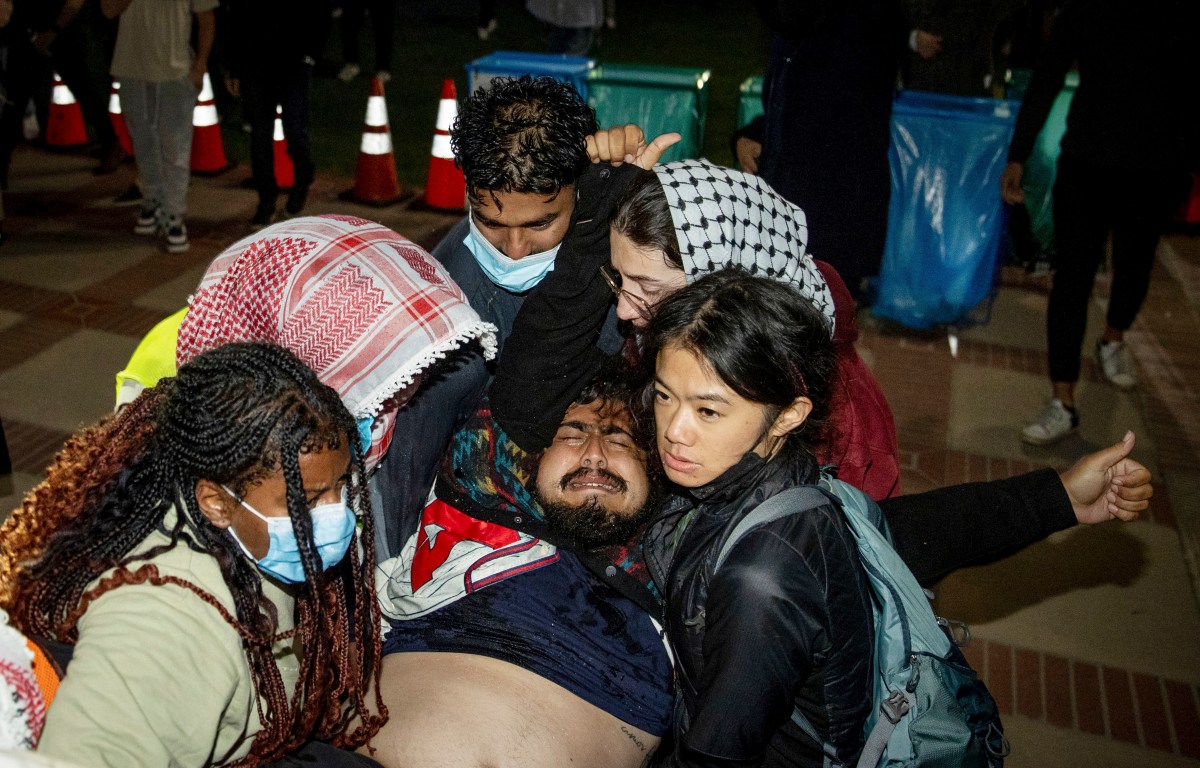GAZA CITY, Gaza Strip – Thousands of Israeli troops backed by tanks and helicopter gunships surrounded Gaza’s largest city and fought militants at close range on Sunday, in the first full day of an overwhelming ground offensive in the coastal territory.
Israel said it has inflicted a heavy blow against Hamas as it expands a weeklong offensive meant to stop rocket fire on southern Israel.
But spiralling civilian casualties among Palestinians fuelled an international outcry, even as the U.S. blocked approval of a UN Security Council statement Saturday night calling for an immediate ceasefire.
Israel’s ground forces moved in after nightfall Saturday following hours of intense, fiery artillery shelling to clear the way, and Hamas warned that its fighters would turn Gaza into an Israeli “graveyard.”
On Sunday, Israeli soldiers continued to fight primarily in open areas in the launching zones used by Gaza’s militants to fire rockets at Israeli communities. As the troops in three brigade-size formations moved in, residents of those communities began emerging from bomb shelters in hopes that the rocket fire would taper off.
Backing up the troops, mobile artillery units fired shells that exploded in veils of white smoke over Gaza’s urban skyline. Tanks pushed south of Gaza City as deep as the abandoned settlement of Netzarim, which Israel left along with other Israeli communities when it pulled out of Gaza in 2005.
That effectively cut off Gaza City, the territory’s largest population centre with some 400,000 residents, from the rest of Gaza to the south.
Israel’s military chief said Hamas fighters were trying to draw soldiers deeper into Gaza’s sprawling, densely packed urban areas.
“You entered like rats,” Hamas spokesman Ismail Radwan told Israeli soldiers in a statement on Hamas’ Al Aqsa TV. “Gaza will be a graveyard for you, God willing,” he said.
Israeli forces have not yet entered urban areas, said Brig.-Gen. Avi Benayahu, the chief army spokesman. He warned, however, that the operation was not a “school trip” and would be long and demanding.
The ground invasion risks turning into intense urban combat, with house-to-house fighting, sniper fire and booby-traps. Hamas is believed to have some 20,000 gunmen and has had time to prepare.
Gaza officials said at least 31 civilians were killed in the onslaught, which also continued from the air.
At one hospital, in the northern village of Beit Lahiya, medics carrying three injured children in their arms rushed them to treatment. One of the children had a blood-soaked bandage wrapped around his head and covering his eyes.
An Israeli air strike close to Gaza City’s main market showered the area with shrapnel, killing three children, all of them siblings, medics said. Militants were using empty land next to the Firas market to fire rockets.
Israeli forces killed dozens of armed Hamas gunmen, an army statement said, but Gaza officials could confirm only a handful of dead fighters – in part because rescue teams could not reach the battle zones.
The new deaths brought the death toll in the Gaza Strip to more than 512 since Dec. 27. The tally is based on figures from the UN and Palestinian health officials as well as a count by The Associated Press.
One Israeli soldier died – the first to be killed in the ground operation – and 30 others were wounded, some of them in heavy exchanges of fire near the militant stronghold of Jebaliya, a town on Gaza City’s northern outskirts, the army said.
Heavy Israeli casualties could undermine what has so far been overwhelming public support for the operation.
But condemnation of Israel’s ground operation poured in from around the Middle East and Europe. “It is absolutely necessary that the violence has to stop,” said EU External Relations Commissioner Benita Ferrero-Waldner.
Support for Israel remained firm in the United States, where leading Bush administration and Congressional officials say Hamas is completely to blame for the violence.
Israeli President Shimon Peres said that Israel had to push forward despite the calls for a halt to the ground offensive and that a ceasefire was pointless without a stop to Hamas rocket fire.
“Well, clearly, if there is somebody (who) can stop terror with a different strategy, we shall accept it,” he said on ABC’s “This Week.”
Peres said Israel is not aiming to reoccupy Gaza or even to crush Hamas, but to “crush terror.” Under Israel’s blistering assault, he said, Hamas was “now beginning to feel the weight of their mistakes.”
The ground operation is the second phase in an offensive that began as a weeklong aerial onslaught aimed at halting Hamas rocket fire that has reached deeper and deeper into Israel.
More than 30 rockets and mortar shells fell in Israel on Sunday morning, sending Israelis scrambling for bomb shelters. Two Israelis were lightly wounded. Four Israelis have been killed in the attacks since the offensive began.
Lubna Karam, 28, said she and the other nine members of her family spent the night huddled in the hallway of their Gaza City home. The windows of the house were blown out days earlier in an Israeli air strike, and the family has been without electricity for a week, surviving without heat and eating cold food.
“We keep hearing the sounds of airplanes and we don’t know if we’ll live until tomorrow or not,” she said.
Severe damage to Gaza’s phone network was pushing the strip closer to complete isolation. The Palestinian phone company Paltel Group said 90 per cent of Gaza’s cellular service was down, as well as many landlines, because of frequent power cuts and the inability of technicians to reach work sites.
The Israeli chief of staff, Lt.-Gen. Gabi Ashkenazi, told a meeting of cabinet ministers that most of Sunday’s fighting was at close range, with Hamas preferring to fight in built-up areas rather than on open ground.
Israel on Sunday approved the mobilization of thousands of reservists, in addition to tens of thousands called up on Saturday. Defence officials said the extra forces could enable a far broader ground offensive.
The troops could also be used in the event Palestinian militants in the West Bank or Hezbollah guerrillas in Lebanon decide to launch attacks, as Hezbollah did in 2006 when Israel was in the midst of a large operation in Gaza.




